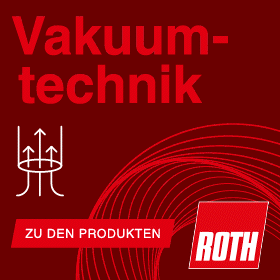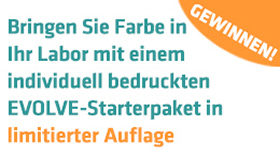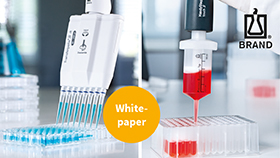Now Bring me that Horizon
Career strategies for young European scientists
by Ralf Schreck, Labtimes 05/2014
Page 1 | Page 2 | Page 3
Five months of uncertainty
All proposals of a given call have to be evaluated within five months, which is a considerable improvement in comparison to the past. At the Research Executive Agency, there will be the admissibility and eligibility check of your proposal. In the worst case, for example, if a substantial piece of information is missing or if a stringent requirement, such as the mobility rule not being met, the proposal will be rejected.
The evaluation has three stages: individual assessment, consensus meeting and final panel meeting. Your proposal is at first subjected to a remote evaluation by at least three experts. They prepare individual evaluation reports based on the mentioned evaluation criteria. Experts are instructed before the evaluation, so that they all have a similar level of detail. They have to treat all proposals confidentially and have to declare any conflict of interest. One expert will be nominated as rapporteur of your proposal shortly before the consensus meeting in Brussels, in which for each proposal a common consensus for each evaluation criterion and its justification will be sought. Additional participants at the meeting from the Research Executive Agency or additional members of your evaluation panel make sure that the whole process is done properly and ensure a consistent quality of the consensus reports.
In the final panel meeting, all experts of a given panel are present and draw the final panel report, including the evaluation summary reports for each proposal and the panel-ranked list, which consists of a list of proposals earmarked for funding, a reserve list in case proposals are excluded or withdrawn and a list of proposals not funded due to budgetary limitations. In case you are not funded, you may exercise the right to seek redress. The experts’ opinion may not be questioned but formal errors during the evaluation or a non-matching of the scores and of the comments in your evaluation report justify a re-examination. In most cases, however, the overall outcome of the initial evaluation is confirmed.
If you make it onto the right list, you will be invited to the grant preparation stage. Be aware that this is not yet a binding approval for funding. Now your host institution is in charge and has to master the bureaucratic hurdles. The Grant Agreement between the host and the Research Executive Agency has to be prepared and signed within three months. Part of the Grant Agreement is the “Declaration of Honour”, in which the beneficiary has to certify among other things that all information contributed over the Participant Portal is correct, that the institution commits to comply with all rules for funding and that the necessary resources for carrying your proposal are available. Your host will provide you subsequently with an employment contract. After the signature, open a bottle of champagne and start to pack your bags. The EURAXESS site may help you to get personalised assistance or advice for you and your family when relocating.
MSCA – road to success?
As a MSC Fellow you just do what a researcher is supposed to do: experiments in the hope of getting one or another paper published. But how crucial is it for your career to have picked the right fellowship? Yes, there are many other programmes, promoting mobility and career advancement like the Marie Skłodowska-Curie Actions. Some are certainly more prestigious and may be even harder to get, are better paid or come along with some fancy extras. Reputation within the scientific community is a key issue but the real impact of a fellowship programme is hard to anticipate.
To address this point, the European Commission initiated a study, the results of which have been published recently in the well-worth reading report “Marie Curie researchers and their long-term career development: A comparative study”. Data on the career paths of former Marie Curie Fellows (MCF) under Framework Programmes 4, 5 and 6 were collected and compared to a control group of scientists, who have never been granted a Marie Curie Fellowship (non-MCF). By going through bibliographic databases and contacting authors, who acknowledged support from the Marie Curie Programme and other means, about 1,400 valid responses from former MCF were finally received and compared to those from about 1,500 non-MCF. Forty-two different types of effects on fellows’ careers, such as scientific output, employment status or mobility behaviour and 16 additional variables, such as gender, age or citizenship were taken into account and subjected to a thorough statistical analysis.
The main conclusion of the report was that a Marie Curie Fellowship does indeed have definite beneficial impact on the career of a scientist. However, the authors had to admit that differences to the control group of non-MCF are often marginal. This was explained, for example, by the fact that researchers of the control group may have participated in other mobility measures, too, which had similar outcomes on their careers. To give a few examples of benefits: Marie Curie Fellows were found to be more successful in obtaining a grant from the European Research Council, by three percent. Holders of individual-driven MC Fellowships published five more articles and had a higher h-index, which is a measure for scientific productivity and impact, by +2.85 in comparison to the control group. With respect to employment status, it turned out that former Marie Curie Fellows are more likely to head a research team as principal investigator by plus 10% or to be employed by a Top 100 institution of the Times Higher Education ranking. But no statistical difference on income to the control group was found.
Some benefits, such as becoming a professor were shown to materialise somewhat later in the career of MCFs in comparison to the control group. This was explained with the “affiliation effect”, which may reward non-mobile researchers staying at the same institution throughout their career and in turn may penalise the mobile ones. A possible bias of the study is that the participants in the MCF-group have been selected in part on their success, as evident from being present in publication databases and on their whereabouts in the academic sector. At least you have learned from the study that becoming a Marie Skłodowska-Curie Fellow will do no harm to your future career.
So you really have no reason not to submit a proposal at the next deadline. According to the Work Programme 2014-2015, this is set for Marie Skłodowska-Curie individual fellowships for September 10, 2015 at 5.00 p.m. Brussels time.
Additional interviews with, for instance, Axelle Viré, vice-chair of the Marie Curie Alumni Association, can be found on our website: www.labtimes.org
Internet Links
Page 1 | Page 2 | Page 3
Last Changed: 16.09.2014







